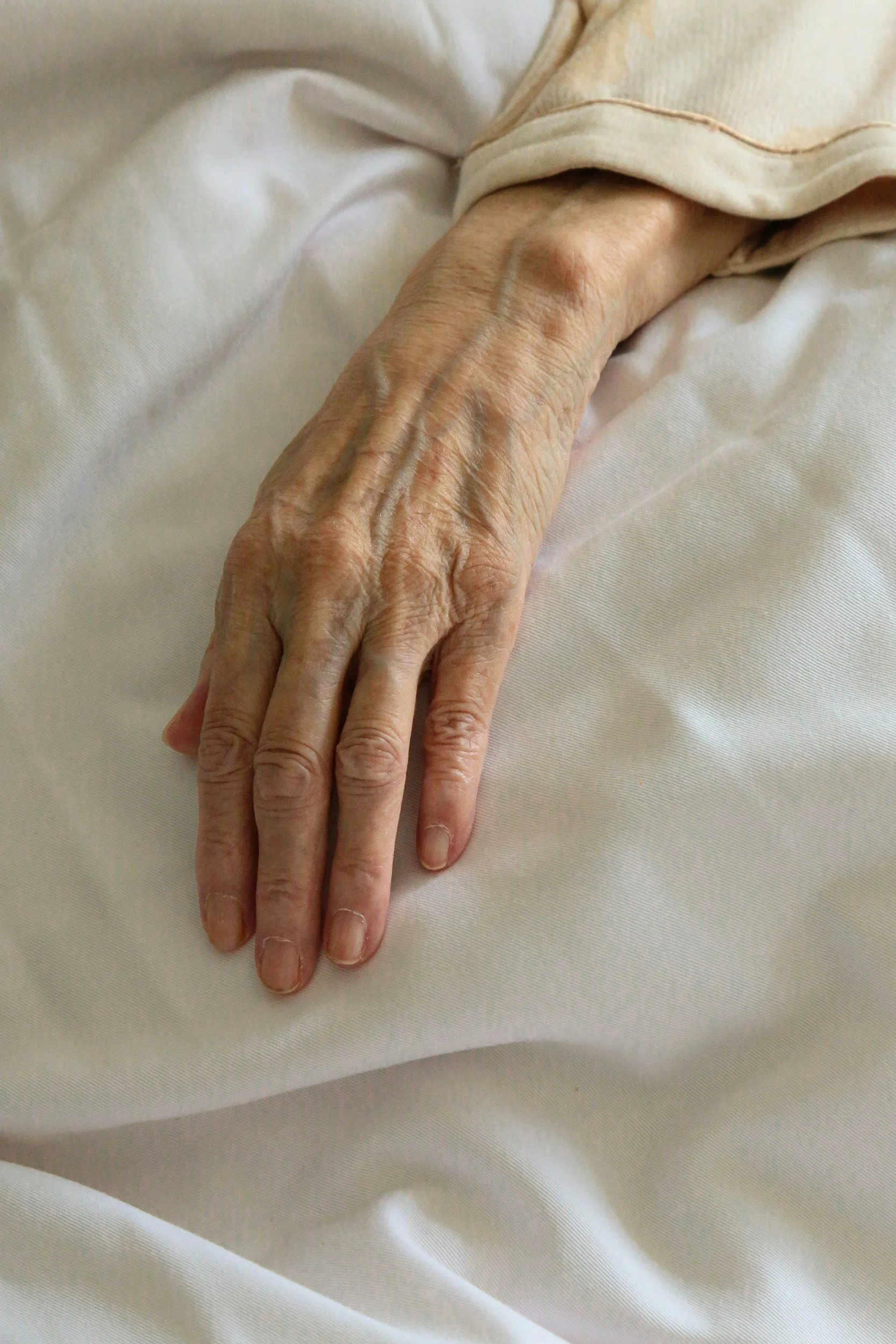Exempt Human Specimens
According to the United States Postal Service website, it’s illegal to send body parts through the mail.
“Heavily restricted,” is a better way to put it. You need the necessary permits, containers, a transport license from the American Association of Mortuary Shippers. There are rules involved, special restrictions; same goes for dry ice and lithium batteries. You can mail live bees, but not medical marijuana. Those thin, translucent lines that keep us from stuffing a toe into a manila envelope on the way to work.
It’s not, however, illegal to mail someone’s ashes. Once a body has been cremated - placed inside an industrial furnace, cranked up to 2,000 degrees, cooled, ground into fragments and scooped into a bag - it’s no longer considered a physical body in the eyes of the law. You can do anything you want with your pulverized bone fragments. Stick them on the mantle, flush them down the toilet, or Fed-Ex them to your dead husband’s parents on a Monday afternoon.
I know all of these things because I have spent hours on the phone, channeling my horror into a freelance detective job. I’ve called four funeral homes in three states, two cemeteries, the Fed-Ex hotline, six family members. I upset the McGann Hay funeral director so much he started calling his employees at home. I made a cemetery caretaker cry about his wife. She died of thyroid cancer.
The bitter vibrations of my voice are seeping into unsuspecting ears, and they are making people do things: answer questions, transfer to managers, apologize, look up files. They are doing it because they understand that even if a law hasn’t been broken, the rules have been. Chaos arrived in a gust of thick humid air, and we’re all afraid.
“She stole Bret’s ashes.”
These are the first words in my ear when I pick up the phone the night before. The voice on the other end makes my skin prick, hushed, ghostly, echoed. It’s my sister whispering from inside her closet.
Once there were three of us, the older brother and two girls. Like a sitcom family before my dad walked down the basement stairs to find his son slumped, silent.
“She stole Bret’s ashes, we don’t know why. She dumped some on the Appalachian Trail and FedExed the rest back. Mom opened the box without realizing.”
My dad repeats these words at my sister’s door. Pale and confused, trying to make sense of it. The FedEx box is resealed, out of sight, my mom is resting, she wants to be alone. I am not to be told about the new chaos. I am eight months pregnant with low blood sugar and my dad fears pregnant lady hysterics will shock me into early labor. He’s still in shock, trying to shake the thick swirling clouds that follow him around since he walked down those basement steps.
My mom, locked in her room sewing baby blankets, doesn’t want anyone to know. She drowns out the heavy air with the whir of a Singer 4423. Slipping light blue fabrics under a sharp needle forming a neat, round stitch. The crisp white thread loops perfectly every time. She sees today’s delivery as another scrap of evidence against her. Proof she is a bad mother, her unstable son chose an unstable wife, her clean, round stitches have come undone.
Because that’s the thing. You can bury your Chaos as deep as you want, but it’s still there, pulsating beneath the dirt until it calls the Granger Indiana Mortician’s office, pays $150, and obtains a special order to dig it up.
That night, I wait for my brother to haunt me. It’s been fourteen months since the final overdose and I’m ready. Lying alone on the couch in striped maternity pajamas, I never tell my sister that I am alone for the night, that my husband is out of town. Now everyone has a secret.
Three times I wake and waddle down a dark, creaking apartment hallway filled with Fed-Ex boxes. I am certain he is coming for me. To apologize, to explain, to cry, to ask for a small loan. My brother’s ashes are all mixed up now. I don’t know what parts we have and what parts are six hundred miles south as part of a twisted, macabre shared custody.
It’s all messy and sooty and out of order. There is a reason for funeral traditions and mourning rituals. The rules keep you sane, they keep the Chaos where it belongs, swept inside a silver box under the earth next to Grandpa. But when you dig it up, and stir it around everything is thrown out of order. People begin to crack, the cracks widen and the chaos seeps through like a poisonous fog. You inhale it, it infects you, and you become one of them.
Every light switch blazes while I work. I fold and refold baby clothes, I make safety charts, I strategically place phone numbers for poison control centers. I shove blankets under the doorways, I fill the cracks with tape, I cover outlets and sharp corners, remove heavy objects that can fall. I need to keep out the poisonous air, I am panicked, I am desperate, I am boarding up my windows, I am the hysterical woman in a Hitchcock film: lips formed around a perfect O of terror, no sound coming out.
By dawn I am exhausted. I lie in an ice cold bath tapping my fingers against swollen skin, Morse code warnings for the tiny ears inside.
The house is locked down tight. Nothing can get in and he didn’t come to haunt me after all. The disappointment tastes like metal in my mouth.
My husband arrives home at 9am. She stole the ashes and we don’t know why. He hears the vibrations in my voice, he inhales the poisonous fog that drifted in through an unseen crevice. We panic and then we argue and I begin making phone calls to funeral homes.
Stirring up the Chaos.
-Jennifer Coffeen
Jennifer Coffeen is a Pushcart Prize nominated author of short stories and flash fiction and is the author of several novels/novellas (The Wild Rose Press, Musa Publishing). Jennifer is the Events Director at StoryStudio Chicago, and has been a writing instructor with StoryStudio Chicago, Windy City RWA, Allen County Public Library, and the Indiana Humanities Writing Workshop Program. She is currently working on Season 4 of the Creepy History podcast, which she co-hosts with Fraser Coffeen.





